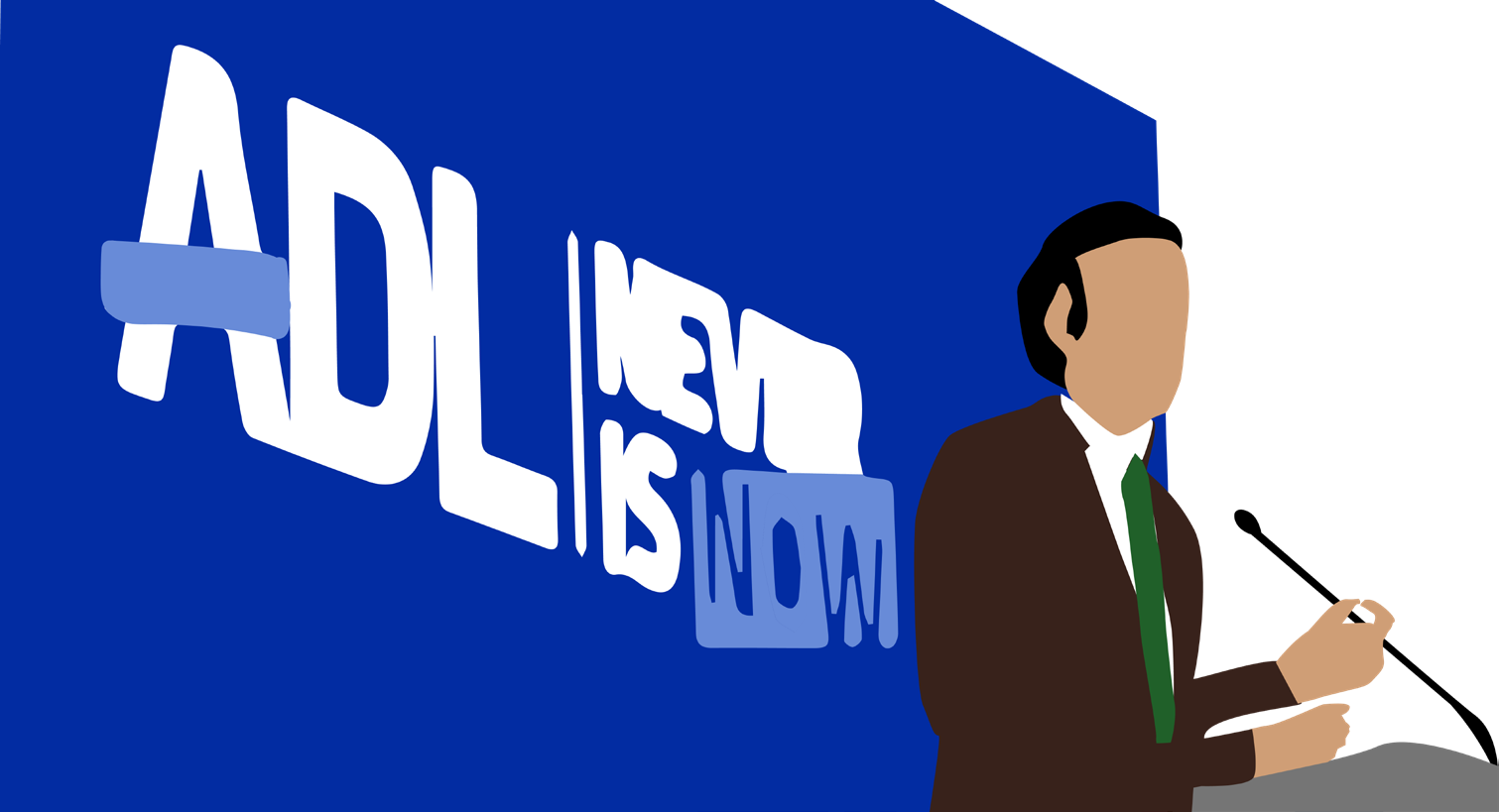Comedy as a “very nice” way to make a political point
Sacha Baron Cohen has always been Borat, the journalist from Kazakhstan, or Jean Girard who intimidated Ricky Bobby with his French accent and elite racing skills. Baron Cohen has always simply been a comedian to me, and one with a sense of humor that treads on the thin ice of political correctness.
However, two weeks ago, his speech to the Anti-Defamation League (ADL) made Baron Cohen more than just a comedian to me, but rather a comedian who has used his talent for joke telling in a way that benefits the greater good. Using comedy as a way to make a political point is of immense value in this society, and it was encouraging to see such an eccentric comedy figure use his platform to make valuable commentary on the principles of democracy.
Now don’t get me wrong, many of his jokes remain awfully vulgar, and he is a comedian that seriously pushes the limits on what you can and cannot make jokes about. He even acknowledges that not “…everything I’ve done has been for a higher purpose. Yes, some of my comedy, OK probably half my comedy, has been absolutely juvenile and the other half completely puerile.”
The key point of his most recent speech, however, is that the principles of democracy are being threatened by the profit-seeking silicon six, and because they refuse to censor specific messages off of their platforms (like Holocaust deniers, live streams like the shooter from Christchurch and propaganda supporting a genocide in Myanmar), they are doing a disservice to the country and the fundamental principles democracy relies on.
Baron Cohen relates this back to his comedy by arguing, “We have lost, it seems, a shared sense of the basic facts upon which democracy depends. When I, as the wanna-be-gangsta Ali G, asked the astronaut Buzz Aldrin ‘what woz it like to walk on de sun? ’ the joke worked, because we, the audience, shared the same facts. If you believe the moon landing was a hoax, the joke was not funny.”

Using comedy as a platform is an interesting, and I must admit, effective way to underscore serious political issues. And Baron Cohen makes a seriously good point here: satirical jokes like his are not funny if common facts are not shared.
Comedy and politics thus have an interesting relationship as Baron Cohen seems to understand. Comedy, especially stand up and satirical skit comedy, is another way for the citizenry to check political power. But comedy only works if facts and the truth are protected by the institutions in place. It’s a tricky relationship to navigate.
Comedy is relatable, and people are undoubtedly drawn to jokes and humor. By hinting at serious political issues or social injustices through joke telling, it lightens the load the audience is hearing, thus reaching a broader audience (if properly delivered of course).
Saturday Night Live has been doing political satire for decades, going back to the age of Chevy Chase portraying President Gerald Ford. And in more recent years, popular, big-name comedians like John Mulaney, Tina Fey, Seth Meyers, Kate McKinnon and Dana Carvey all have political segments in their stand-up specials or have nailed political characters in their skit performances.
Having popularized comedic bits that check the authority of the institutions is a necessity: consider comedy as having the same role as traditional media being an independent source for checking authority, but, you know, funny and easier to stomach when the topics get a bit heavy.
As Baron Cohen argued in a past interview, going undercover as Borat or Bruno, “the first aim is to be as funny as you can but occasionally you end up uncovering some unpleasant truths,” referring to racial, sexist, religious and homophobic stereotypes.
Appreciate comedy for what it is, but recognize the power it can wield in political life if done correctly. Baron Cohen used his platform for good in his speech to the ADL, and recognizes that while much of what he does is purely vulgar humor with no deeper purpose, much of what he does relies on exposing political and social injustices in the world.
Comedy is not only just for a good laugh, but much of the time it serves a deeper purpose and checks the power of political institutions in a creative way, reaching a broad audience that may have otherwise opted-out of political participation.














































